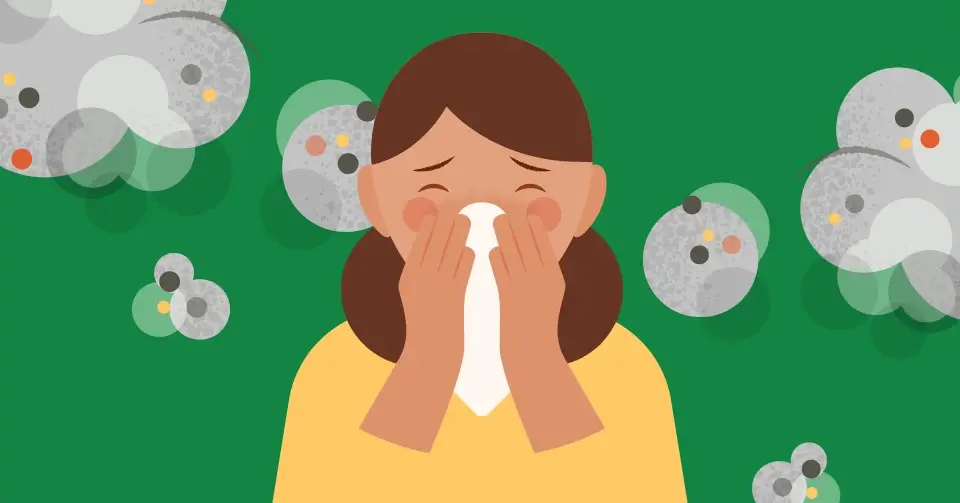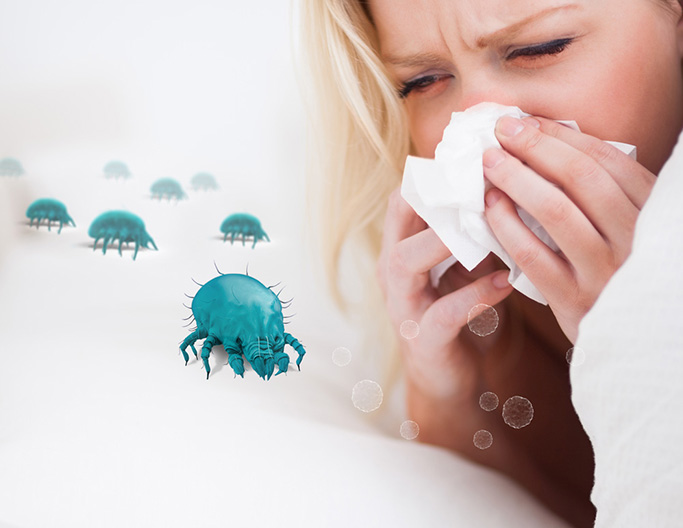Dust allergy: Everything you need to know
A prevalent type of allergy that affects millions of individuals worldwide is dust allergy. An allergic reaction to dust mites, which are microscopic insects that reside in household dust, is what causes it. Even though they can be found in bedding, mattresses, carpets, and upholstered furniture, dust mites are invisible to the unaided eye.
Your immune system overreacts and creates antibodies known as immunoglobulin E (IgE) when you inhale dust mite allergens. Your airways' mast cells become attached to these antibodies, and when they do, histamine and other chemicals are released. Sneezing, runny nose, watery eyes, and itchy throat are a few of the allergic reaction symptoms that are brought on by these chemicals.
Asthma in certain people can be brought on by a dust mite allergy. Breathing becomes challenging due to inflammation and airway narrowing caused by the chronic lung disease asthma. When exposed to dust mite allergens, people with asthma may develop wheezing, chest tightness, and shortness of breath.
An allergy to dust symptoms:
From moderate to severe, dust allergy symptoms might differ from person to person. Typical signs include:
- Sneezing
- runny or congested nose
- Itchy, watery eyes
- Sore throat
- Coughing
- Wheezing
- breathing difficulty
- chest constriction
Risk factors for dust allergy :
Your chance of getting a dust allergy may rise due to a variety of variables, such as:
- allergy history in the family
- Personal history of hay fever or eczema as well as other allergens
- Asthma
- residing in a humid atmosphere, owning upholstered furniture and carpets, and keeping animals
Diagnosing dust allergy:
If you are experiencing symptoms of dust allergy, your doctor will likely perform a physical exam and ask you about your medical history. They may also order an allergy test to confirm the diagnosis.
There are several ways to do allergy tests, including:
- The most used allergy test is the skin prick test. A tiny needle containing a tiny amount of the dust mite allergen is used to prick the skin during the procedure. You will experience an itching, raised lump at the test site if you are allergic to dust mites.
- Blood test: This test assesses your blood's amount of IgE antibodies to dust mites. You may be allergic to dust mites if you have a high level of IgE antibodies to them.
- Treating dust allergy
There is no cure for dust allergy, but there are a number of things you can do to manage your symptoms and reduce your exposure to dust mites.
Medication:
Both over-the-counter and prescription drugs are available that can assist to treat the symptoms of dust allergies. These drugs include corticosteroids, decongestants, and antihistamines.
There are a variety of things you may do to lessen the quantity of dust mites in your house, such as:
- Once each week, wash mattresses and bedding in hot water (at least 130 degrees Fahrenheit).
- Dust-mite coverings should be placed over mattresses and bedding.
- Use a vacuum with a HEPA filter to clean carpets and upholstered furniture.
- damp mop hard floors.
- Use a dehumidifier to lower the humidity in your house.
- Your bedroom should not have carpets or upholstered furniture.
- Avoid bringing pets into the house.
to help manage your asthma symptoms Your doctor may also suggest more medications, such as bronchodilators and inhaled corticosteroids, if you have asthma.
Being allergic to dust:
Despite being a chronic illness, dust allergy is manageable with the correct care and a change in lifestyle. You can lessen your exposure to dust mites and get relief from your symptoms by using the preceding advice.
Here are some more pointers for managing a dust allergy:
- Spend as little time as possible in ancient houses, basements, and other dusty areas.
- Wear a dust mask if you must be in an area that is dusty.
- To get pollen and other allergens off your skin and hair after being outside, take a shower.
- Keep your house tidy and clutter-free.
- Avoid using cleaning solutions with overpowering scents because they can irritate your airways.
Consult your doctor if you have any queries or concerns about dust allergy.






Comments
Post a Comment